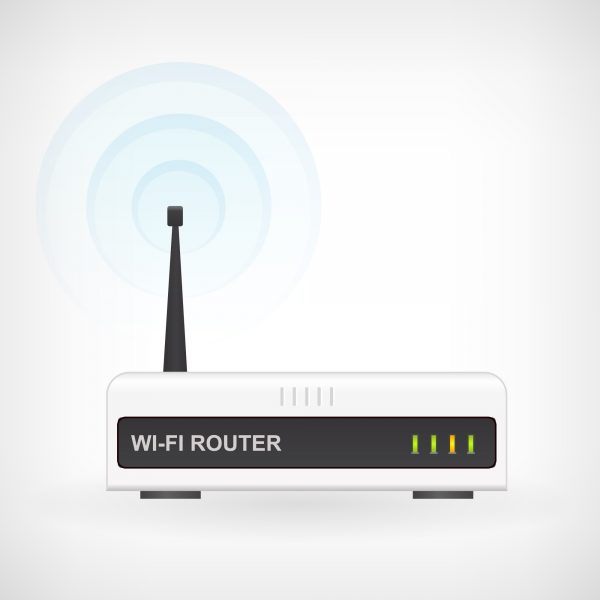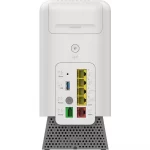Onestream Claims to be First UK Broadband ISP to Encourage Router Reuse

Hampshire-based broadband ISP Onestream, which sells internet access packages using Openreach’s national network, today claims to have become “the first” internet provider to offer all its customers the “game-changing” option to reuse their existing router when they switch – “saving money and preventing devices becoming electronic waste.”
The provider’s announcement, which comes ahead of National Recycle Week (October 14th – 20th), states that it has “decoupled” its service from its routers, and is now calling on major brands like BT, Plusnet, Sky Broadband, TalkTalk, and Virgin Media to “follow its lead and stop locking their devices down” (i.e. stop restricting access to advanced settings in their devices and preventing customers from reconfiguring them for use with a competitor).
In initial trials, Onestream say that 21% of their customers chose their “money-saving, eco-friendly option” to use their existing equipment when they switched, by following a simple process to reconfigure their routers.
Advertisement
The provider claims research has indicated that an estimated 9 million people switch ISPs each year (other figures say switching occurs to a much lower level than this), which, they say, suggests that if a fifth of those decided not to change router, it would prevent around 1.8 million devices being “stored or dumped” each year.
Aaron Brown, Co-founder of Onestream, said:
“Locked-down routers are a major source of e-waste, and providers who refuse to allow them to be decoupled from the service are restricting customer choice and contributing to environmental harm in a way that is completely unnecessary.
We are proud to lead the way in offering a more sustainable, game-changing option that not only saves our customers money, but also helps protect the environment from the effects of large volumes of electronic waste being destroyed or sent to landfill.
For our customers, reconfiguring an existing router is usually simpler than setting up a new one. If the major providers followed our lead, many more consumers would be able to make this choice.
We believe reusing routers should be the default choice, and we challenge other providers to join us in making a simple change that could have a huge positive impact.”
On the one hand, we agree that locking down routers is an annoying practice, particularly if you’re a more advanced user, and anything that helps to put an end to that is usually a good thing. On the other hand, a lot of ISPs out there do NOT lock down their routers or may already allow you to use a third-party device.
Meanwhile, other providers will often ask you to return your router when you leave, at which point they may reuse them with other customers or resell them (i.e. sending the kit to landfill is usually a last resort if they can’t be recycled or reused via another method). For example, BT (inc. EE and Plusnet) put a fair bit of effort into reusing the routers that get returned, so they don’t all get “stored or dumped“, and they’re not the only ones.
However, Onetsream points to another study (here), which in 2022 claimed to have found that two-fifths of households had an unused router in their home, while one in seven had two or more collecting dust – representing over 22 million devices with the potential to become e-waste. But some of that kit may be so old that it might even be dangerous (security risks) to reuse them.
Advertisement
Finally, we should add that not every router will be fully compatible with a different broadband network, so simply being able to reuse the kit doesn’t mean it’ll actually work properly when the physical network and ISP is changed.
Mark is a professional technology writer, IT consultant and computer engineer from Dorset (England), he also founded ISPreview in 1999 and enjoys analysing the latest telecoms and broadband developments. Find me on X (Twitter), Mastodon, Facebook, BlueSky, Threads.net and Linkedin.
« EE UK Overcharges Some Mobile Customers by Hundreds of Pounds
Sky UK Extends Satellite TV Partnership with SES Until 2029 »





















































and what will “onestream” do if the customer has a problem that may or may not be due to their router?
That’s one reason why many ISPs give you one of theirs, even if you keep it in its box. It is a known quantity and in most cases gives them far more remote diagnosic capability, which could mean a quicker fix and savings on pointlessly sending out technicians.
Even expensive routers can be problematic, as seen on this website’s forum and in other places. Sometimes it’s a bug (and yes, the stuff people praise can be very buggy) and sometimes it’s someone not knowing what they are doing.
ISPs will be especially reluctant to give out the SIP credentials for their associated phone services for obvious reasons.
Well it’s nice to see OneStream are boldly claiming something that we have been doing for the best part of the last 18 years.
My message to Aaron would be more aware of the wider market before making bold “leading the way” claims, but it’s lovely to see another ISP make the eWaste step, be it 18 years late.
Martin Pitt
Managing Director
Aquiss Limited
http://www.aqusis.net
Well done to you as well.
I bet we won’t see BT/Ee, Vodafone, sky or any other larger providers doing it as they want to chuck as much junk in their routers as they can.
Ah, PR wars.
Lets hope the next time a competitor decides to comment on a news story, they actually spell the name of their business correctly under the words ‘Managing Director’
Same here at Zen.
We encourage our customers to return their unused routers and if we suspect a customer has a faulty router, we have a stock of loan routers we can send to the customer for diagnostics.
As for locking down settings, I see why some ISPs do it but I personally am not a fan of the practice.
“now calling on major brands like BT, Plusnet, Sky Broadband, TalkTalk, and Virgin Media to follow its lead and stop locking their devices down” – good luck with that.
I wonder how security patching will be managed.
Security patching – like any other non-isp router. My Asus router can be updated manually or tick the box for it to check/update automatically at a specific time.
I have a feeling that security won’t be managed. I guess there is an assumption that providers do manage the security of their own devices once out in the field. Whilst true for the big boys, do the smaller ones like onestream bother? Maybe I’m being unfair.
Wonder how much cost it adds to support others routers and at what point do they give up and just supply their own?
Well done to them. Many ISPS claim to supply their own routers to make it easier to troubleshoot problems, which I can understand to some extent because they have control over the router and can run different tests.
As for the number of routers gathering dust, I understand the feeling; I have routers and modems galore, including a US Robotics courier dial-up modem that I doubt will ever be used again, as well as a slew of PCI modem cards.
Plusnet never asked for their equipment back when I left, possibly because they thought it was too old, but the Zyxel is only about 4 years old, which is considered ancient in today’s world.
Admittedly, I have very complex network. With a PfSense router in the front of everything. Then splitting off to a Unifi fronted network for home use and a homelab using multiple second hand enterprise routers, switches and servers. If I have a line issue, it is very annoying to be told to disconnect everything and put a cheap plastic router on the network before they will even talk about the problem.
Maybe try using an EoFTTC/P or more business line where they’d expect non-provided hardware.
There needs to be a standardised router operating system across every router. Why has this never even been suggested. It would make like so much easer for everyone.
That implies a level of common sense is required, and we know that it isn’t common.
It also require cooperation, which we know with this OTS system that ISP are notoriously bad at.
Alternatively it’s a daft idea that makes progression of new technical standards into the market very difficult, for the most minimal of benefits. If people buy their own, then they can make their own choices without other people making decisions for them. If people use ISP provided routers, then it is the ISP’s job (already written into UK law) to reuse or properly recycle the devices. The only reason some ISPs don’t want them back is often to avoid the costs of proper recycling.
It is possible, my Netgear WAX 206, came with a variant of OpenWRT that Netgear had customised for themselves.
Can add branding and lock down features you dont customers to have access to.
Kind of similar to Android being used on the mobile market.
A balance between innovation and standards could be reached.
Thinking back to connecting a PTTY terminal to a dial up modem there were fairly standard commands one could use to interrogate them.
Creating a interface API standard that would allow ISPs to get a ‘picture’ of any connected modem would allow diagnostics. If it’s their own modem they would be able to do a lot more, if it’s one with basic compatibility interface there would be a small number of debug/set/reset options they could perform.
Should those 1st line defence solutions fail, they would then be able to insist on you attaching an ISP provided/approved model.
This could be a good balance all round.
They could even put a green BABT approval circle on it and insist that ones without the standard interface carry a red triangle! (Those were the days)
They do it is called Linux and the firewall stuff is IPtables. The rest is some basic tools and GUI on top.
It is only when you start moving up to the prosumer and enterprise stuff that you start seeing other OS types. PfSense is a BSD variant, as is Juniper OS. Cisco use a mixture of Linux again and QNX a micro kernel based OS for their IOS (Internetworking Operating System). The real difference from this or a server running Linux is the kernel tuning optimizations to process packets and commands run on top of it. Of course at the enterprise level there are a whole lot of high availability features as well.
I should add that I’ve just tried to look at onestream’s prices and notice that their apparently cheap broadband is bundled with addons that are only free for the first month or two, something called “onestream assured” at £4.95 a month (for free callouts, hmm) and a mcafee bundle for £34.95 a year. You have to click down on the arrow next to the price and remove them manually, it’s not very obvious at all. Perhaps they advertise it further in the order process but I’m not going to try.
The advertising of a higher RRP next to the actual price (not including those extras) seems a bit DFS “never ending sale” to me.
So, all in all, perhaps not the sort of ISP that should be pontificating on sales practices or giving you things you don’t need!
Or let us use are own modem/routers
Already can with many ISPs (unsure about virgin though). Just need to get some basic details from them. I use my own with PlusNet, did the same when I was with TalkTalk too.
Vodafone chat had zero issues giving me a PPPOE when I asked.
A significant risk here for the average non-techie consumer is whether the router they elect to use will continue get updates, and how would they know it’s end of software support. Whilst I really would like to see eWaste minimised, it also needs to be done in such a way that keeps consumers secure as far as possible.
When our street first got FTTP in 2021, I joined IDNet- were you used your own router. Switched to Aquiss were I am still using my own equipment.
Bold claim by Onestream which seems to tally with many of their 1 star reviews on Trustpilot. They do seem to encourage recycling and/or customers using their own equipment if you fail to return theirs within the 14 days.
Totally agree with this. I would much prefer to choose my own hardware.
Customers should have to provide a router in order to get a service. If customer does not have kit then an order can be placed during provisioning of a service. Money could be saved by offering a discount if using own kit.
All that would be needed is for Service Providers to have a shared compatible hardware list to ensure that router hardware and firmware is supported up to date. A standardised optional OS and UI would also be of a benefit.
I would also like to see a universal standard set of modems used across the industry capable of being used by all providers. This would also make firmware updates and modem replacements much simpler.
If they want to save money the people that own there 3rd party router they shouldn’t need a ISP supplied one anyway
Feels like there needs to be an agreed (versioned spec) so customer can go out and buy a router with at least spec V2 say, and ISP can say you need V2 or greater for these packages. It would vary as clearly a router for a 50M package may struggle to pass multi gigabit speeds
Maybe as part of common spec the ISP settings could be in standard form
When I moved into my new build OFNL connected home, I told my ISP I didn’t need their router, and would provide my own for moving day…..
They sent me a crappy ZTE one anyway… it’s sat in the garage for the last 5 years.
This isn’t exactly new, so I don’t know why they’re claiming it is. My ISP for over two years as offered the ability to use your own router and they waive the set up fee if you do so.
Since this isn’t DSL, anything that could go wrong would go wrong at the ONT, If the ONT stops working, The router stops working so it wouldn’t matter if it’s an ISP router or not, even though the first comment seems to think so
Read that first comment again, because I explain my point. I’ll repeat myself here – there are other potential issues, it’s not just simply whether you are online or not.
For example, in another forum, a user was complaining about being throttled on IPv6 traffic. Reconnection of the ISP supplied router (or “cheap plastic router”) showed that the problem went away. The root cause was their overpriced, overrated Ubiquiti router not being able to handle the load (probably not hardware accelerating it), especially if you want to use any of the fancy features on top, like, er… firewalling.
I suppose it’s good that the user wanted to keep IPv6 working as the usual home remedy is to turn it off. That and split SSIDs (which provide a poorer experience) are the go-to solutions for people who think they know more than they do.
There are many other such cases.